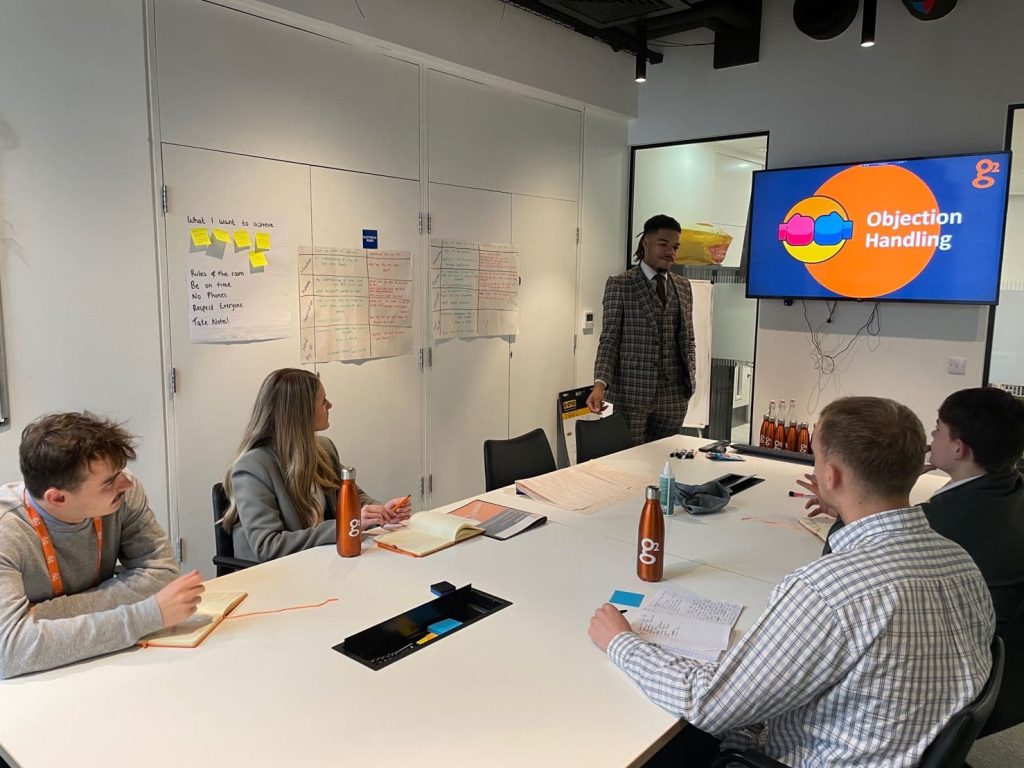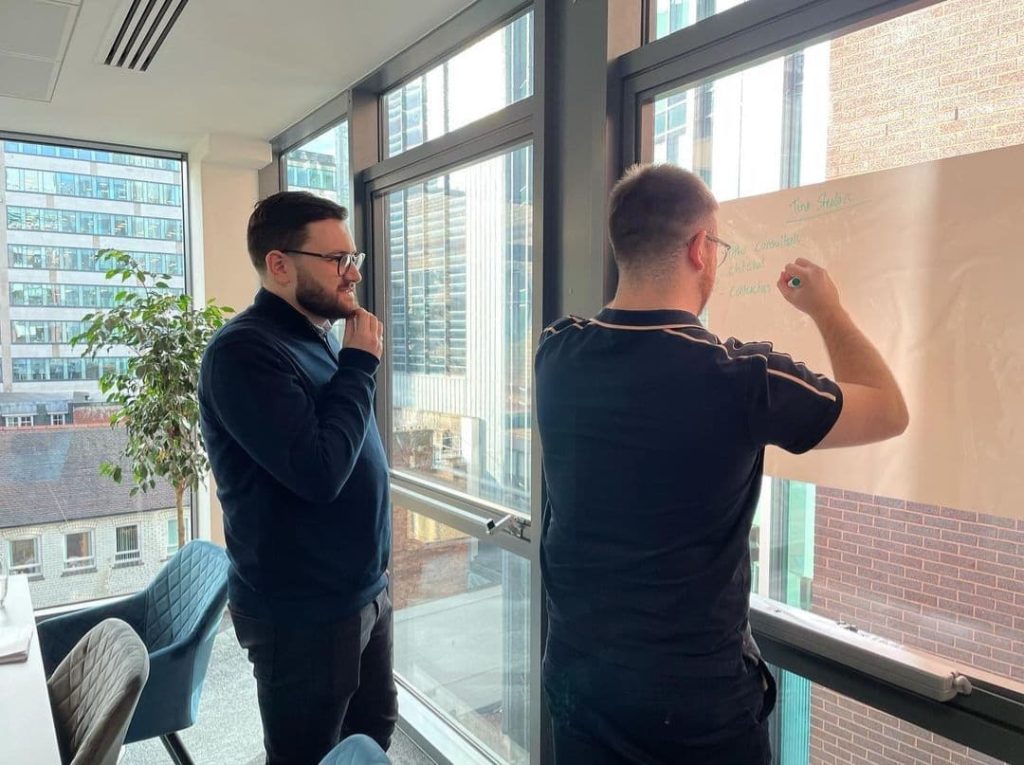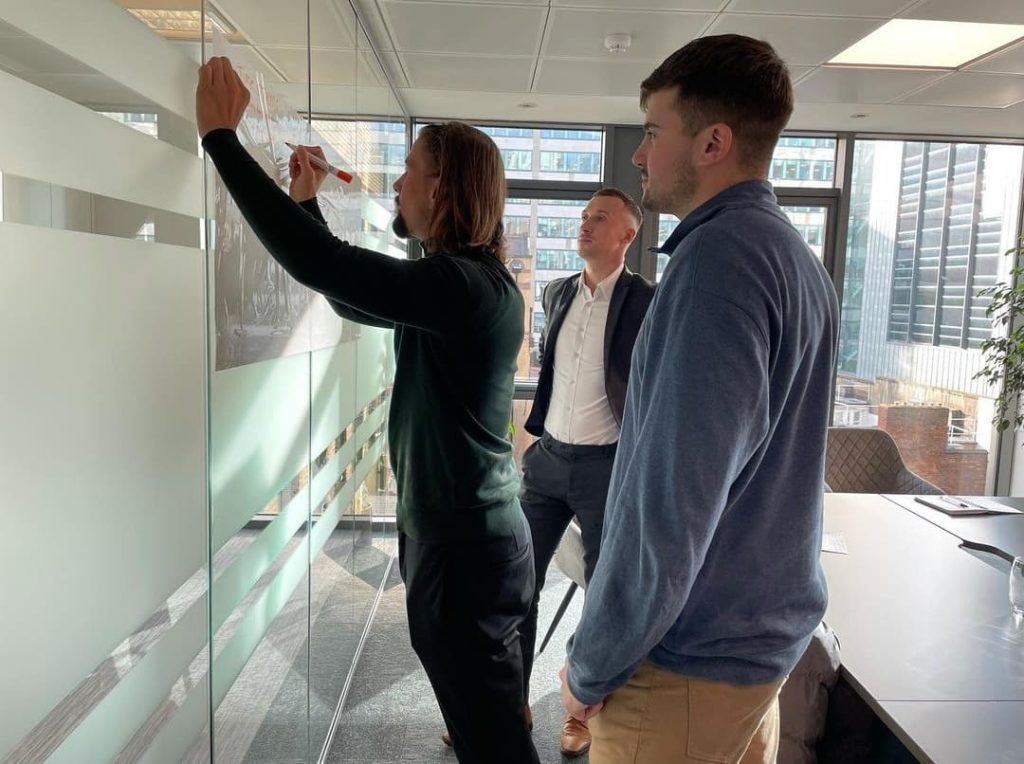It is increasingly clear that the transition to renewable energy is essential.
This is crucial not only for environmental protection and sustainable development but also for economic growth and ensuring a secure and equitable energy future.
Renewable energy sources, such as solar, wind, and hydropower, generate electricity without emitting carbon dioxide or other greenhouse gases, making them a more attractive investment option for many countries and corporations.
As these protective energy sources continue to aid the ongoing struggle to combat climate change, the industries that engineer, manufacture, and export them are seeing immense expansion.
Author Josh Smith notes the economic predictions for the next decade states:
“Global hydrogen production will rise from its current 71 million tonnes to 168 million by 2030. And revenue generation within the market is expected to increase from $177.3 billion in 2020 to $420 billion in 2030.” – Josh Smith, Gibson Watts, 2023.
Hydrogen market: The resource and skills gap challenge | Gibson Watts
It is evident there will be an ever-increasing demand for new professionals with the much-needed expertise in the Renewable Energy Sector.
Where Technological Advancements have been made:
Advancements within the renewable energy sector have been made possible over the past few decades because of many technological advancements that the industry has seen.
A wave of the most rapid expansions was due to dramatic increases in capacity and technology, which occurred throughout the 2010s decade.
One of these factors was the advancement in battery technology, particularly lithium-ion batteries, which have since been instrumental in growing the sector by enabling industry leaders to have better energy storage solutions.
In addition, this advancement also addressed the intermittency issues associated with solar and wind power, meaning that these avenues could now be considered reliable sources of energy.
This has been noted by author Mohammad Rahimi in the below article.
“Compared with other batteries, LIBs offer high energy density, high discharge power, high coulombic efficiencies, and long service life. These characteristics have facilitated a remarkable advance of LIBs in many frontiers, including electric vehicles, portable and flexible electronics, and stationary applications.”
Batteries | Free Full-Text | Lithium-Ion Batteries: Latest Advances and Prospects (mdpi.com)
This, together with the rapid progress in the expansion of the industry, has led to many clients experiencing challenges in finding and placing candidates with the necessary experience to fulfil roles successfully.
Unfortunately, however, this can lead to companies experiencing longer onboarding processes or difficulty recruiting high-quality candidates quickly enough for the anticipated project turnaround, delaying crucial progress.
How Technological Advancements are affecting the Hydrogen Industry:
One expanding industry which has been affected due to these challenging circumstances, is the Hydrogen Sector.
A critical factor for expansion has been the Net-Zero Emissions Target, which has seen many countries and corporations commit to reducing emissions by up to 45% by 2030 and reaching net zero by 2050.
“From now through 2050, hydrogen can avoid 80 gigatons (GT) of cumulative CO2 emissions. With annual abatement potential of 7 GT in 2050, hydrogen can contribute 20% of the total abatement needed in 2050.” – Hydrogen Council, McKinsey & Company
Hydrogen-for-Net-Zero.pdf (hydrogencouncil.com)
The effects of these impacts are resulting in a new demand for a niche skilled workforce.
How Technological Advancements are shaping the Recruitment demand.
When any industry sees advancements, the need for new personnel becomes rampant.
As renewable energy is a relatively new industry, finding candidates with the necessary experience can be challenging due to the limited talent pool that currently exists.
This creates competition for available knowledgeable workers with the same skillset within the industries surrounding the Hydrogen Sector.
Companies that are more well-established powerhouse tend to hoover up talent, making it difficult for newer SMEs in the Hydrogen industry to compete.
However, g2 Recruitment’s goal as is to continue delivering the best industry talent to the professionals that we work with, regardless of limited talent pool or other challenges that seem to be shaping the employment landscape.
A way to overcome some of these challenges is to utilise various overlapping skills that exist between non-renewable energy skill sets, such as mechanical and electrical engineering and renewables.
Many of the candidates that we work with, have retrained within the renewable space, resulting in an ample supply of knowledgeable workers who are ready to be placed into suitable positions.
An example of this would be candidates that we have previously recruited for SynGas (ammonia/methanol) and Oil & Gas projects. These skills often transferable for renewable projects, meaning that we have suitable people who can hit the ground running on projects right away.
Combatting Hiring Challenges:
Another challenged faced is the Regulatory Uncertainty of these sectors as they continue to expand.
Challenges such as, regulatory frameworks and government policies play a significant role in shaping the future of recruitment within the renewable sector. Uncertainty around this can cause issues for both employers and job seekers.
To combat the worry of this, our consultants stay updated about the latest market and regulatory changes, adapting to any shifts to occur that may affect the market.
Through collaborating with clients in the Renewable Energy sector for over ten years, we have built up the knowledge and trust that our consultants have with clients and candidates. This is solidified with our quick turnaround time of 24 hours.
Business Development Manager, Steffan Howells, who has been working with our clients in renewables for over five years, has identified that a key solution for overcoming some of these challenges that have emerged because of the technological advances that have been looked at.
Additionally, we collaborate with numerous regulatory bodies, helping us to manage and navigate these regulatory hurdles directly and promptly.
Facilitating a Solution
A uniter in many of these challenges is to humanise the recruitment process for all parties involved.
Taking the time to learn about our candidates, their skillsets and how they can be utilised is extremely important. It is vital that candidates don’t just feel like a number when they are in the process of transitioning projects – something that is often the case with automated recruitment processes or corporate interviews.
“Our turnaround time for sending a CV to a client is 24 hours. This means that we are able to provide a quality workforce quickly, even when it comes to niche skillsets. We can do this as 75% of our candidates are located from specific talent pools, so even before the need is there, we have already spent the time learning everything there is to know about the candidate.”
Many of the candidates that g2 Recruitment have at their disposal have retrained within the renewable space, resulting in an ample supply of knowledgeable workers who are ready to be placed into suitable positions.
To learn more about how g2 Recruitment provides specialist recruitment strategies and solutions to the ever-evolving renewable energy industry, visit our Engineering page.






